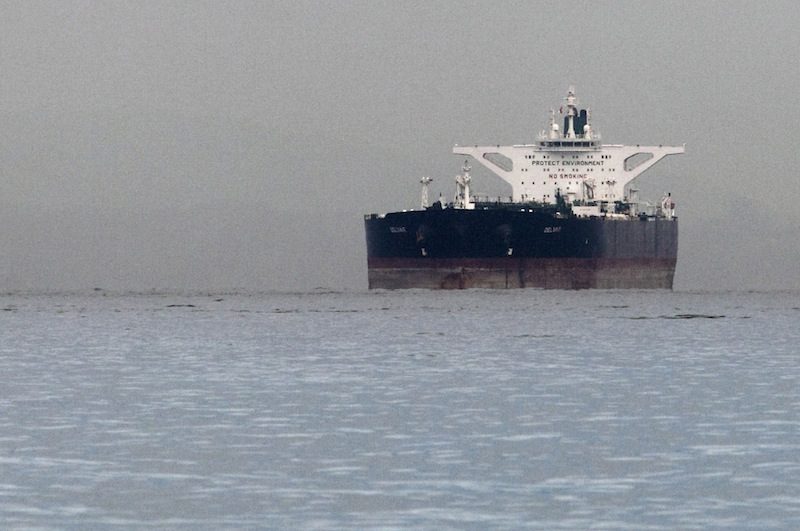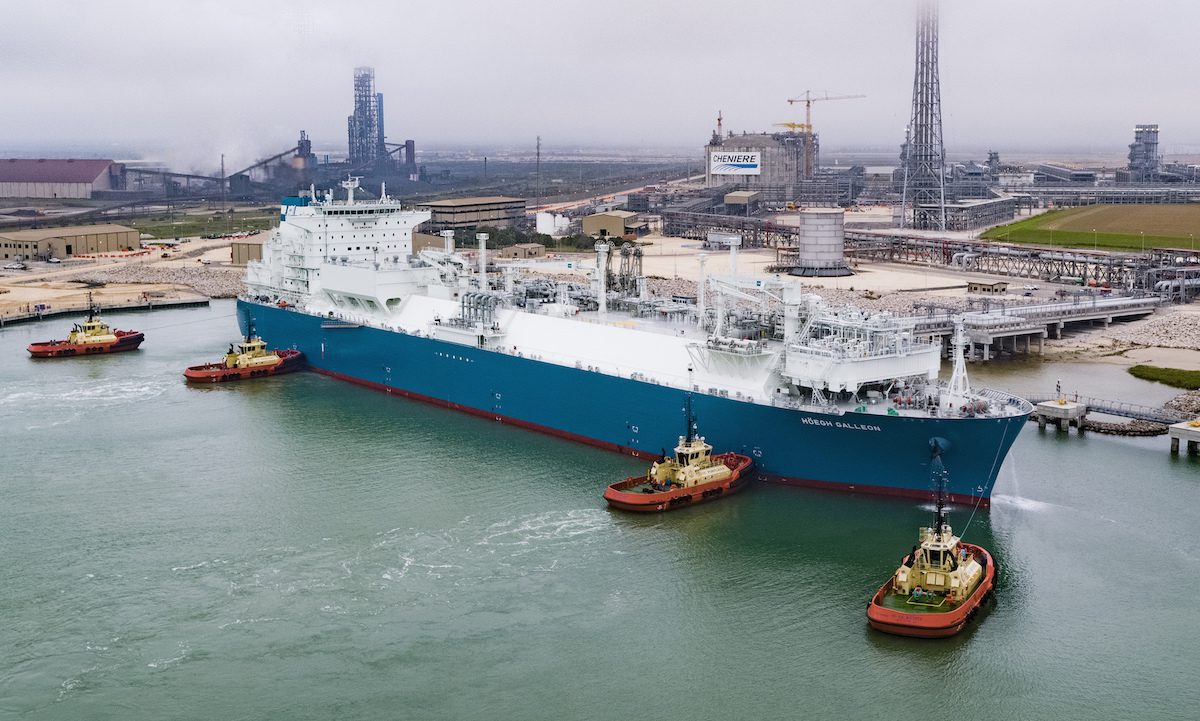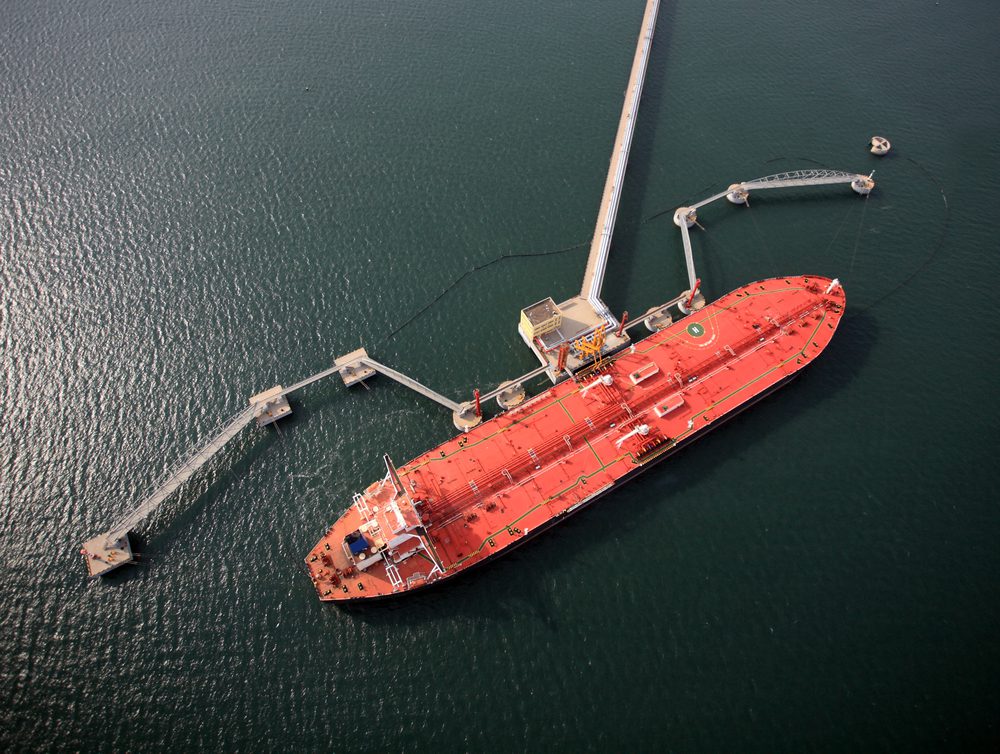By Grant Smith
Oct 8, 2023 (Bloomberg) –As oil traders prepare for the market to open after the sudden eruption of war in Israel, one question is key: will the conflict spread to the rest of the region?
Crude traders don’t expect a massive price surge as there’s no immediate threat to supply. But all eyes are on Iran, a major oil producer and key backer of the Hamas group that launched this weekend’s offensive on Israel.
A retaliatory strike against the Islamic Republic would inflame fears over the Strait of Hormuz, the vital shipping artery which Tehran has previously threatened to close. There’s also the prospect of the US cracking down again on a resurgent flow of Iranian oil exports.
Related Article: U.S. Disrupts Multimillion-Dollar Shipment of Iranian Crude and Seizes Cargo
“Iran remains a very big wild card,” said Helima Croft, chief commodities strategist at RBC Capital Markets and a former CIA analyst. “Israel will escalate its long-running shadow war against Iran” and “what is unpredictable is how Iran would respond to such an intensification.”
The risk of a wider conflict has emerged just as global crude supplies have been depleted by months of sharp production cutbacks by Saudi Arabia and Russia. Last month their supply constraints briefly pushed Brent futures to almost $100 a barrel.
“It is unlikely to impact oil supply in the short term,” said hedge fund trader Pierre Andurand, founder of Andurand Capital Management LLP. “But it could eventually have an impact on supply and prices.”
The onslaught comes almost exactly 50 years after the Arab oil embargo, when Saudi Arabia and other OPEC producers choked off flows to the west in the wake of the 1973 Yom Kippur War, which also involved Israel.
No one expects Riyadh — which has been negotiating with Washington over normalizing relations with Israel — to turn off the taps in solidarity with the Palestinians now. At worst, the conflict may derail the normalization talks and scupper any additional Saudi oil flows that may have resulted.
The energy minister of the United Arab Emirates, a key OPEC member, was clear on Sunday that the conflict wouldn’t affect the group’s decision-making.
“We do not engage in politics; we govern by supply and demand, and we do not consider what each country has done,” Energy Minister Suhail Al Mazrouei told reporters in Riyadh.
For its part, Iran, also an OPEC member, has expressed support for the Palestinian attack.
If Israel responds by striking any Iranian infrastructure, “crude prices would immediately spike on the perceived risk of a disruption,” said Bob McNally, president of Rapidan Energy Group and a former White House official. For now, that looks unlikely, he said.
Iranian oil has become increasingly important to the market as shipments have rebounded to a five-year high. That has come with Washington’s tacit blessing as the two sides have engaged in tentative diplomacy to re-establish limits on Tehran’s nuclear program.
This weekend’s hostilities could prompt President Joe Biden’s administration to deal more aggressively with those cargo flows, which mostly go to China.
“I think this development will mean stronger enforcement of Iranian sanctions, so less Iranian oil going forward,” said Andurand. “And then who knows what the domino effect will be in the region?”
In a more extreme scenario, Iran could respond to any direct provocation by blocking the Strait of Hormuz, a nautical choke-point just north of the Arabian Sea.
Tankers haul nearly 17 million barrels of crude and condensate each day through the waterway, which at its narrowest point is just 21 miles wide. Tehran threatened to close the strait when sanctions were imposed on the country in 2011, but ultimately backed off.
The swelling tide of Iranian barrels has helped to moderate fuel prices this year while the Saudis and Vladimir Putin’s Russia squeeze supplies. The joint Riyadh-Moscow action is draining oil inventories at the fastest pace in years, installing a hefty price premium on prompt supplies known in the industry as backwardation.
The “crude market is very tight” as “physical markets are screaming, with backwardation heading higher, dragging the flat price higher,”said Gary Ross, a veteran oil consultant turned hedge fund manager at Black Gold Investors LLC.
Last week brought signs that the push toward $100 had gone too far, as Brent slumped 11% to just under $85 on the ICE Futures Europe exchange. Production cuts by the Saudis and Russia may have juiced prices too high, exacerbating jitters over the economy and bolstering the risk of higher interest rates.
On the other hand, slashing output to about 9 million barrels a day has given Riyadh an immense buffer of spare production capacity that could be deployed if the current crisis leads to a disruption. The kingdom has about 3 million barrels day in reserve, and neighboring United Arab Emirates has another 1 million, according to Bloomberg estimates.
That prodigious safety cushion of idle capacity is another reason traders don’t expect an immediate price surge when markets reopen. Still, the events may restore some of the geopolitical risk premium that had melted away in recent years.
“The Hamas strike and Israeli response raises the geopolitical temperature,” said Richard Bronze, head of geopolitics at consultant Energy Aspects Ltd.
–With assistance from Fahad Abuljadayel, Salma El Wardany and Anthony Di Paola.
© 2023 Bloomberg L.P.

 Join The Club
Join The Club











